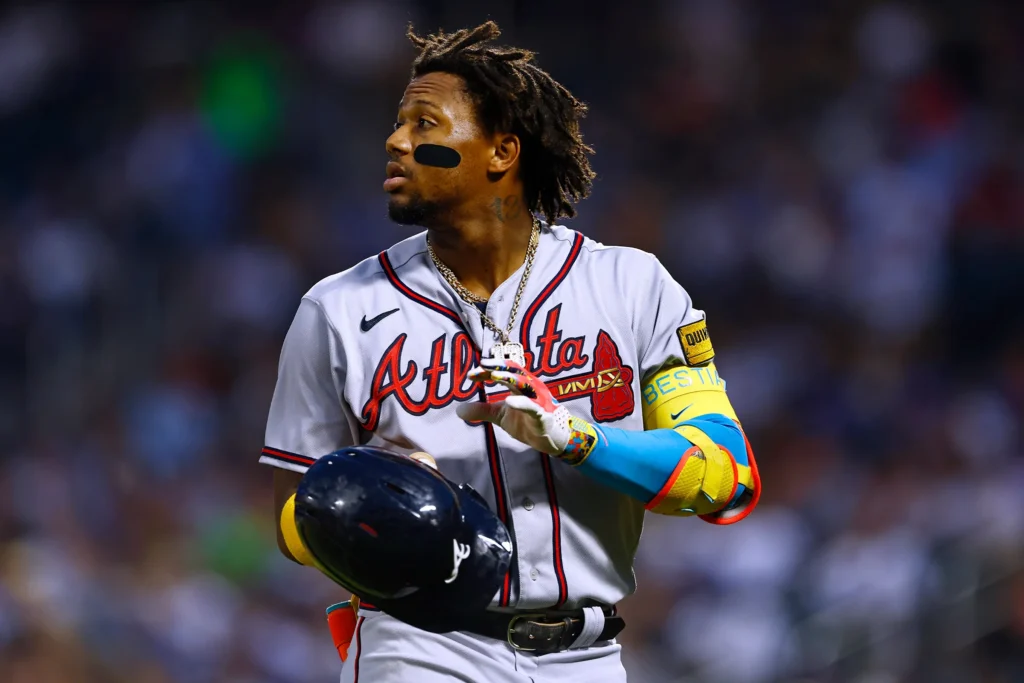
“Is Atlanta Capable of Affording a Free Agent to Replace an Injured Star Player?
Financial Constraints Weigh on Braves’ Decision-Making
As the Atlanta Braves grapple with the potential absence of star outfielder Ronald Acuña Jr. due to an “irritated meniscus,” the team faces a crucial question: Can they afford to sign a free agent as a replacement? The Braves, while boasting significant revenue, find themselves on the brink of the third luxury tax tier, which comes with hefty financial penalties and draft pick implications.
Financial Overview:
The financial landscape for the Braves is complex. While their revenue surpassed the $600 million mark last year, baseball expenses have also risen. Despite having funds available, the key question remains: Will they allocate them towards signing a replacement player?
Current Financial Standing:
As of the latest data, the Braves’ cash payroll for 2024 stands at $228 million, as reported by FanGraphs. However, the real challenge lies in the Competitive Balance Tax (CBT) figure, which exceeds $270 million. The CBT payroll is calculated based on the Average Annual Value (AAV) of player contracts, leading to a higher figure than the cash payroll for the year.
Financial Penalties:
Exceeding the third CBT threshold of $277 million triggers severe penalties. For the Braves, who are already facing increased penalties as second-time payors, the tax rate would rise from 20% to 30%, with an additional 12% surcharge on spending over $257 million. Crossing the $277 million mark would incur a staggering 42.5% surcharge on top of the existing tax.
Draft Pick Implications:
Beyond financial ramifications, exceeding the third CBT threshold results in MLB draft penalties. The team’s highest draft selection would be moved back 10 spots in the next applicable draft, potentially impacting the organization’s ability to acquire top talent, particularly in pitching prospects.
Trade Deadline Flexibility:
With limited space under the current CBT figure, the Braves face challenges in making in-season moves. While there is a possibility of lowering the CBT figure by including a prospect in a trade deal, it is a strategy the team may be hesitant to pursue.
Prospects for Signing a Free Agent:
Given the financial constraints and draft implications, the likelihood of the Braves signing a free-agent outfielder appears slim unless the player comes at a minimal cost. The team must weigh whether such an addition significantly improves their roster compared to internal options.
Uncertainty Amidst Injury Concerns:
The decision-making process is further complicated by uncertainties surrounding Acuña’s injury status. While the team awaits updates on his condition, they may rely on existing players such as Jordan Luplow, Forrest Wall, or JP Martinez to fill the void temporarily.
Conclusion:
The Atlanta Braves find themselves at a financial crossroads as they navigate the potential loss of a key player and the constraints of the luxury tax threshold. Balancing short-term needs with long-term financial sustainability poses a significant challenge for the organization as they strive to remain competitive in the MLB landscape.”







